Free Resources
Are you in an emotionally abusive relationship?
Our free resources help you to decide. They also offer guidance on how to deal with the situations you encounter whilst remaining safe.
Download your personal copy using the links provided.
Are YOU in an Emotionally Abusive Relationship?
This short questionnaire helps you to identify when your relationship with another person is unhealthy for you (toxic).
Six Key Questions
Answer each of the following six questions with ‘Yes’ or ‘No’.
1. Does this person ever:
- belittle you, or put you down?
- blame you for the abuse or arguments?
- deny that abuse is happening, or downplay it?
- isolate you from your family and friends?
- stop you going to college or work?
- make unreasonable demands for your attention?
- accuse you of flirting or having affairs?
- tell you what to wear, who to see, where to go, and what to think?
- control your money, or not give you enough to buy food or other essential things?
- monitor your social media profiles, share photos or videos of you without your consent or use GPS locators to know where you are?
2. Does this person ever:
- threaten to hurt or kill you?
- destroy things that belong to you?
- stand over you or invade your personal space?
- threaten to kill themselves or the children?
- read your emails, texts or letters?
- harass or follow you?
3. Does this person ever:
- slap, hit or punch you?
- push or shove you?
- bite or kick you?
- burn you?
- choke you or hold you down?
- throw things?
4. Does this person ever:
- touch you in a way you do not want to be touched?
- make unwanted sexual demands?
- hurt you during sex?
- pressure you to have unsafe sex – for example, not using a condom?
- pressure you to have sex?
If anyone has sex with you when you do not want to, this is rape. It is still rape if that person is your partner.
5. Have you ever felt afraid of the person?
6. Have you ever changed your behaviour because you're afraid of what this person might do?
Abuse against women often starts during pregnancy. If the relationship is already abusive, it can get worse.
If you have answered ‘Yes’ to any of the above six questions, we advise you to make seek professional advice (e.g., your family doctor) about your situation. The more times you have answered ‘Yes’, the higher the chance that your relationship is abusive.
Download questionnaire and further information about spotting abusive behaviour. →
Safety Information for People in an Emotionally Abusive Relationship
If, at any time you feel unsafe or in danger at home, you should get away from the situation and call the police.
If the incident happens whilst you are at work, immediately contact your HR department who will have procedures in place for dealing with such situations. If this is not an option, reporting the occurrence to a senior manager or to ‘head office’ may also be an option.
Your personal safety is ALWAYS your priority so, if necessary, leave the premises.
If you are regularly in a situation where you are being threatened, controlled or abused, such as, at home, the following checklist will help you to be prepared for an emergency.
- Go somewhere safe - (locked room or separate building/friend’s house).
- Call the police if you feel unsafe or in danger.
- Have an overnight bag packed for emergency use, including
- Change of clothes and toiletries.
- All savings account documents (passbooks, statements).
- Passport, driving licence, address books.
- Spare cash.
In addition, always ensure that your:
- Emergency contact numbers are safely stored with a trusted friend.
- Mobile phone is with you.
- Personal information is protected (secure passwords/safe storage).
This may seem extreme, but abuse can escalate rapidly, especially in those with poorly developed or volatile emotions, like narcissists. Escape may need to be rapid.
Download our simple safety checklist containing additional Safety at Work notes. →
Helping You to Understand the Terminology and Jargon
Our PDF download helps you to understand the main jargon and terminology used when talking about emotional abuse and narcissism, so that you know what is being said or discussed and can act upon it.
Finding Narcissist-Savvy Legal Help
It is important to use people who are trained and informed in narcissists and narcissism WHENEVER we are dealing with a narcissist and their abuse. This is CRITICAL when we engage the help of solicitors and barristers.
Here are some questions that will help you find lawyers who understand what you are dealing with and how best to handle the abuser.
The Questions
Basics
Understanding different types of narcissists and how to deal with their behaviours is essential.
What do they understand by the following terms and how might they expect them to act during a divorce case?
- Grandiose narcissist?
- Covert narcissist?
- Malignant narcissist?
The solicitor/barrister should be able to distinguish between the different types of narcissist and understand how they may behave in different situations that may arise in a relationship and during divorce.
Experience
Knowing about something is no substitute for having dealt with emotional abusers/narcissists. Knowledge combined with experience wins every time.
- How many cases have they represented for a narcissist?
- How many cases have they defended against a narcissist?
- How would they handle the following from a narcissistic spouse.
- Time wasting?
- Lies?
- Unfounded accusations?
- Failure to answer questions?
- Failure to disclose?
The solicitor/barrister should focus on the important matters for the case and make sure any important questions have been answered. They should ignore anything that is irrelevant or is simply the narcissist seeking to distract or delay.
Contacts
Colleague networks are valuable when narcissists make unexpected moves.
These questions determine whether the solicitor/barrister we seek help from liaises with colleagues when necessary.
- How many contacts with experts in the field do they have?
- How many knowledgeable and experienced barristers do they know?
- Do they speak with representatives from support and abuse agencies?
The solicitor/barrister should have a network of colleagues and experts whom they may consult in difficult or challenging situations.
The UK Divorce Process and Where Narcissists Play Their Games.
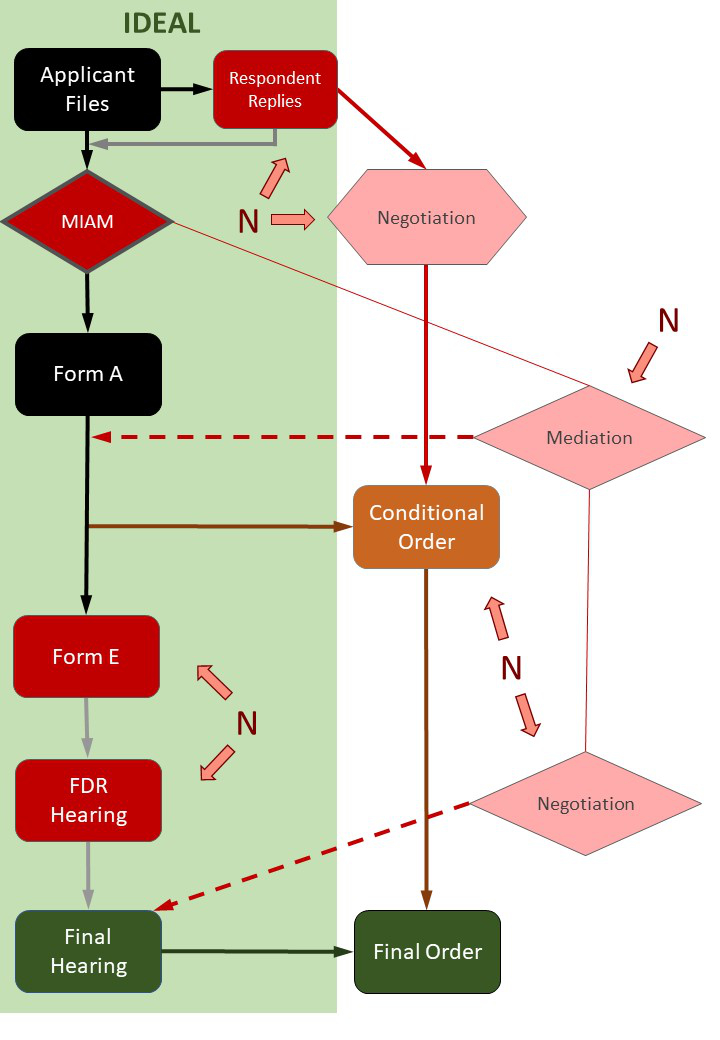
A narcissist will seek to delay and disrupt every step in this process, but they have greatest opportunity to cause problems at the positions marked with an N and arrows.
Download this diagram and accompanying notes. →
Narcissists and Narcissism in Pictures
Healthy Relationships
Healthy relationships are built upon a cycle of communication, relationship and trust.
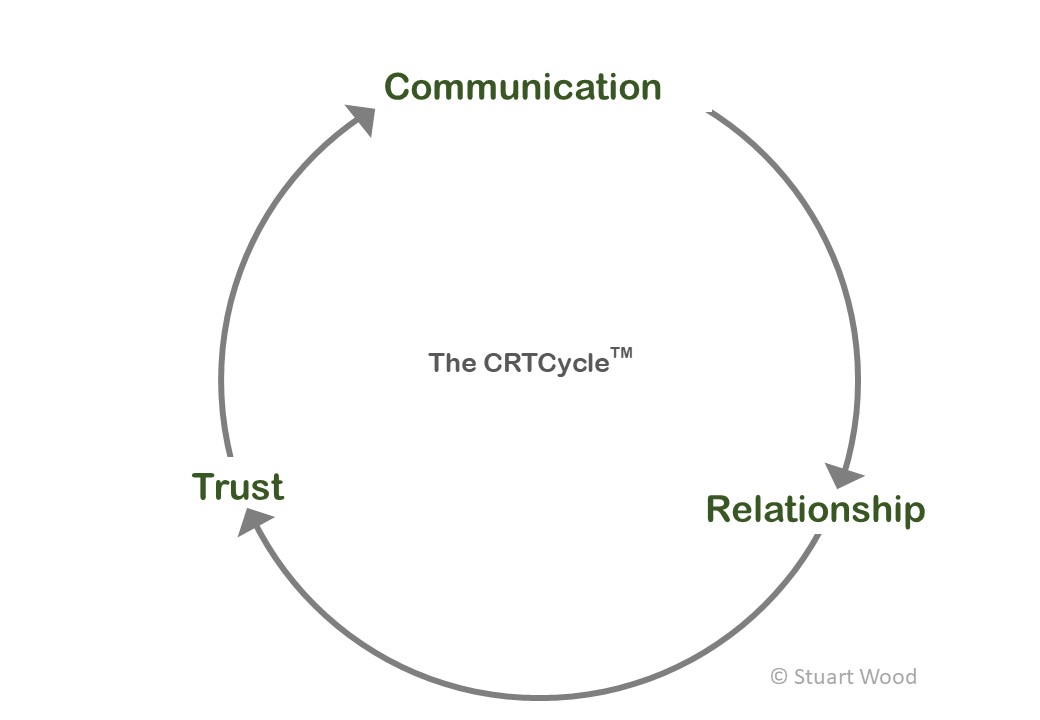
Unhealthy (Narcissistic) Relationships
Narcissistic relationships are based upon a cycle of abuse. First, the target is overwhelmed with attention, gifts and affection. Then they are undermined, discredited and openly criticised. Finally, they are rejected and replaced. The first two steps may be repeated many times. It is common for abusers to leave their victim, only to beg forgiveness and to be taken back, once their shiny, new relationship has fallen apart.
NEVER take an emotional abuser back once they have left you for another. If you do, the cycle will only become more intense and abusive!
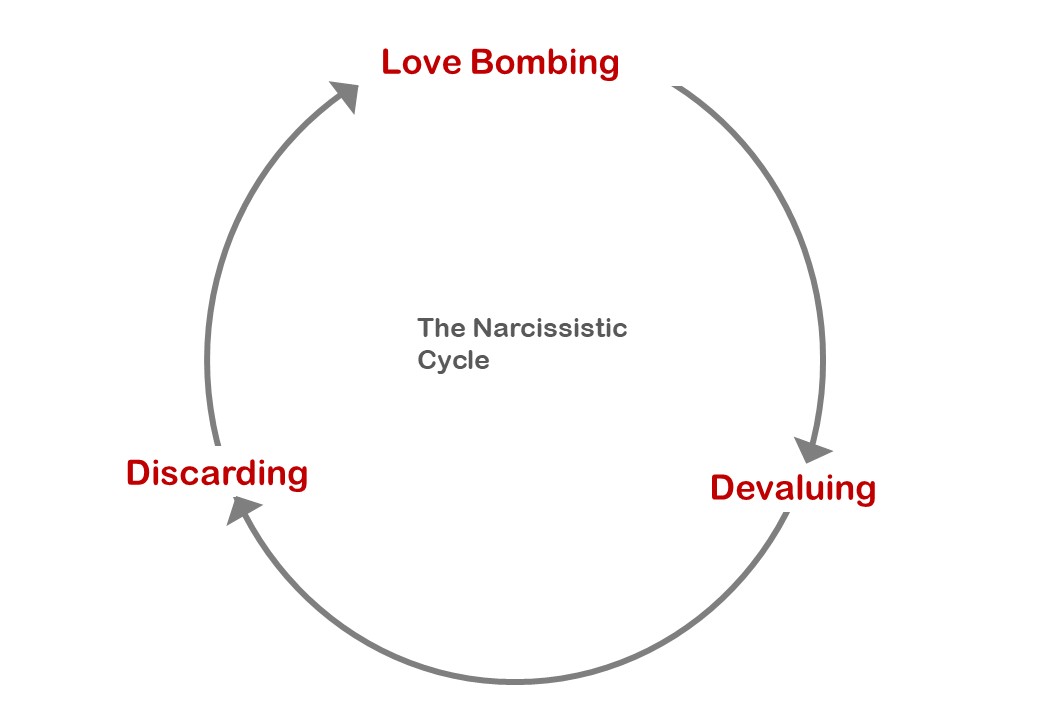
The Narcissist’s View of the World
Narcissists see the world in a completely different way to the rest of us.
EVERYTHING and EVERYONE: friends, relatives, acquaintances, enemies, objects ... all exist for their benefit. They live in a fantasy world where they rule, are invincible and perfection is order-of-the-day.
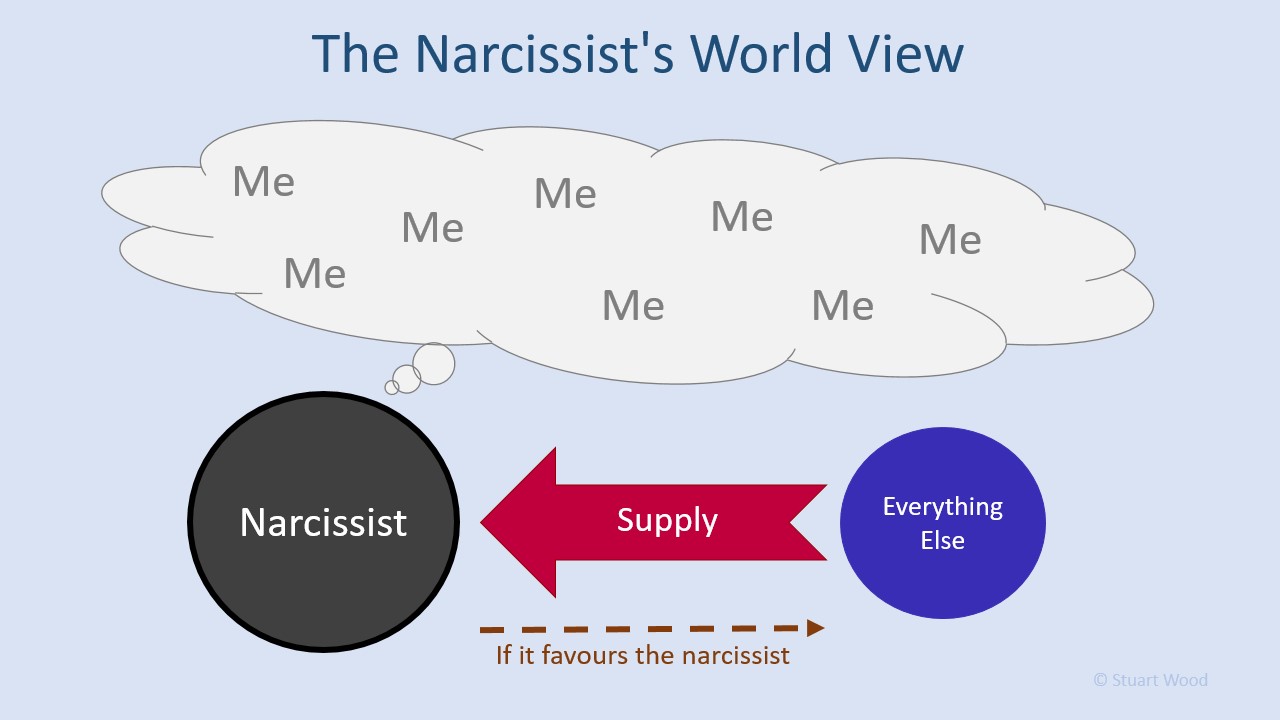
Types of Narcissist
Narcissists have similar ideas and traits, but their behaviour differs, ranging from extrovert to introvert. Each of these types can also include elements of sadism and antisocial behaviour. Some enjoy the limelight; others prefer to remain hidden. Some are solitary and secretive. Others prefer to use the ‘power of community’ to achieve their goals.
This checklist can be used when looking for narcissist-savvy solicitors and barristers (see above).
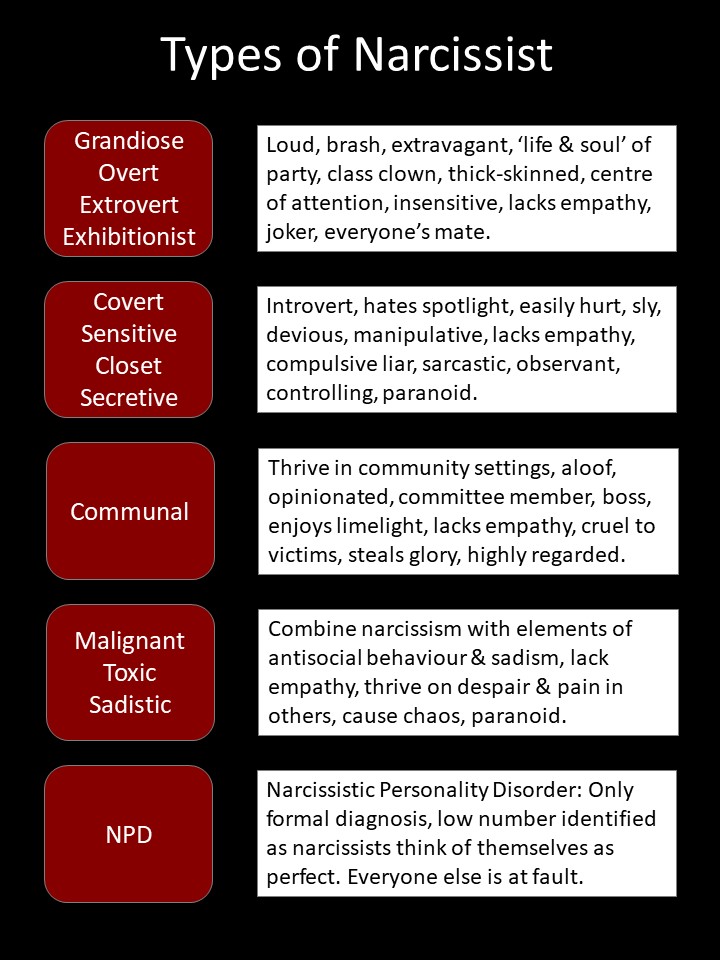
How Narcissists Keep Their True Nature (Self) Hidden
In a word: MASK. Narcissists must live up to their ideals of perfection. So, in order to avoid their true self-image, which is self-loathing, low self-esteem and lack of trust in anyone (including themselves) from being discovered, they project an image of being helpful, quirky, maybe a bit eccentric, reliable: everything they are NOT! This is called the mask and it can be incredibly effective at keeping their real, dangerous self, hidden, until it is too late for their victim.
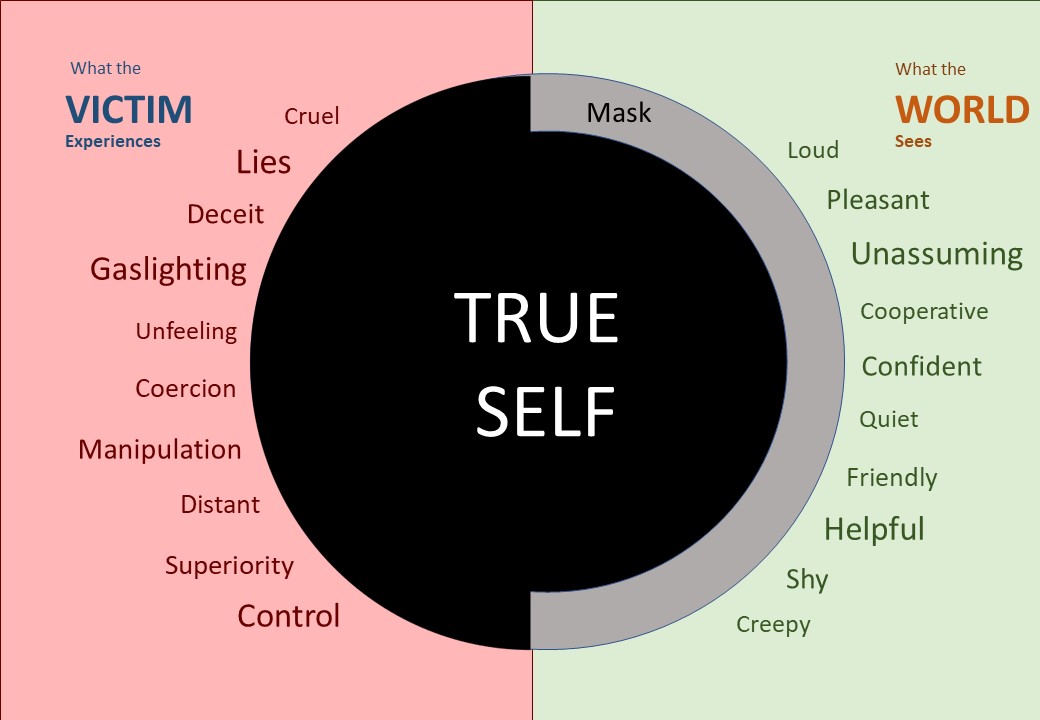
Identifying Narcissists and Narcissism
Narcissists often give themselves away by their attitudes, expectations and priorities in life, which all focus on one person: themselves. Although not always obvious at first glance, their real persona, hidden underneath the mask, usually reveals itself, especially at times of conflict or stress.
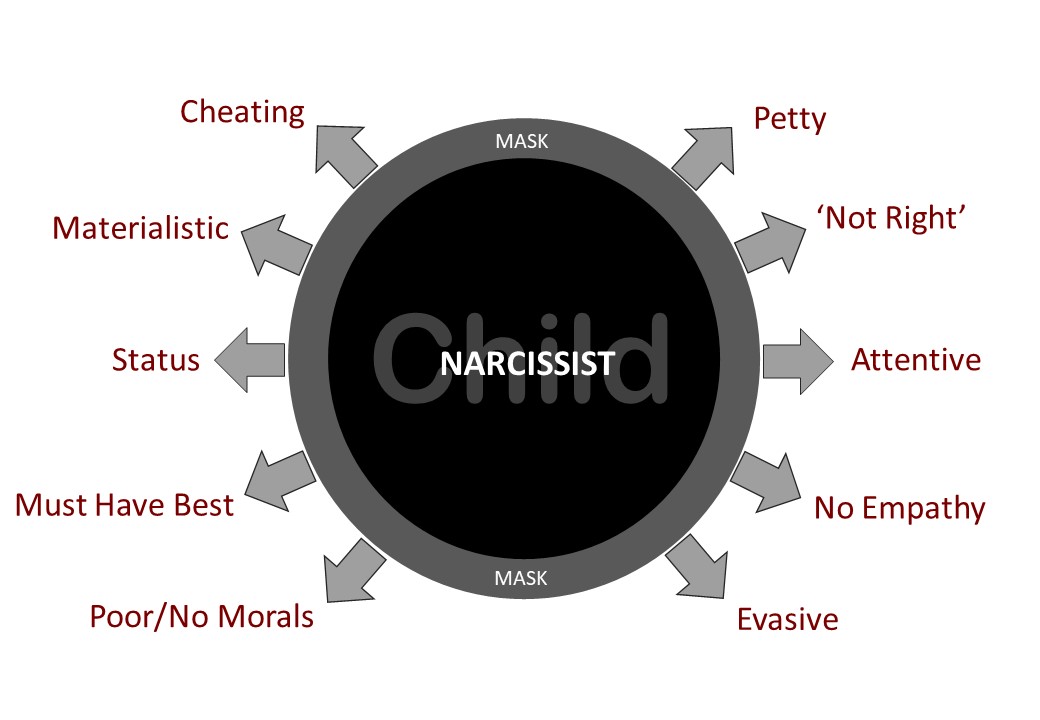
The Effects of Narcissists and Narcissism
Wherever narcissists operate, destruction occurs. Relationships, teams, businesses, communities, countries and cultures all eventually die where narcissists have their way. This is because narcissists lack empathy, their values and their focus revolve only around themselves and what they can gain from any situation. If we look at once great companies, like GE/GEC and Boeing, we see how a narcissistic culture and the resulting amorality have brought them almost to the point of extinction. At a local level, we see the misery caused in families when a narcissistic parent rules the roost, destroying their spouse, children and eventually their family (often for generations to come). Narcissism is not an asset: it is an assassin.
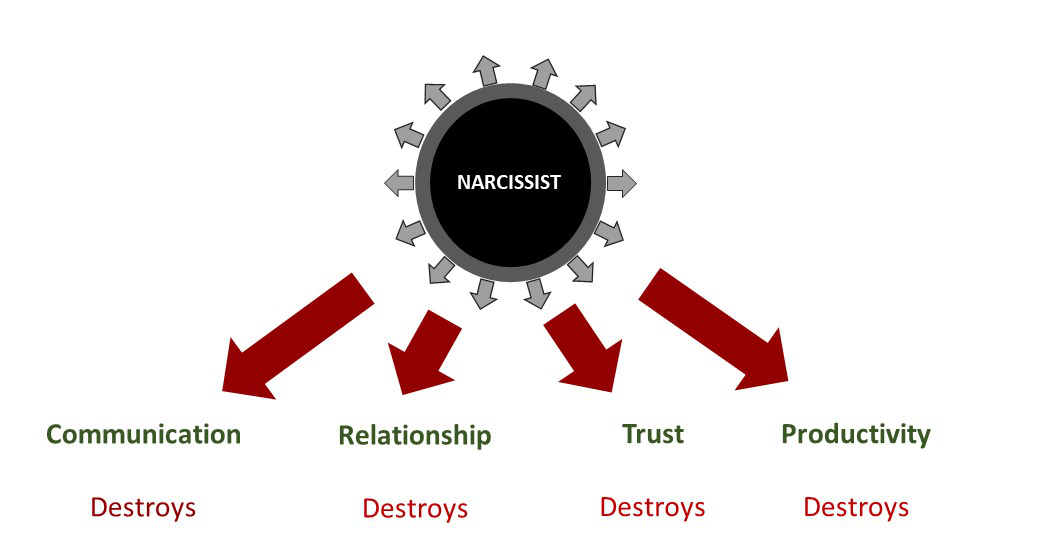
How Narcissists Isolate Their target (‘Victim’)
Narcissists love to be the sole influence in the life of their victim, typically someone in an intimate relationship. They fear victims discovering the truth through wise friends, so they work hard to keep their abused soulmate isolated. What starts as a romantic suggestion to spend more time together often ends in a ‘Smear Campaign’ where the victim’s friends, colleagues, associates and family are fed malicious gossip and lies that cut off the victim from those they need most. Narcissists are cynical, calculating and dangerous.
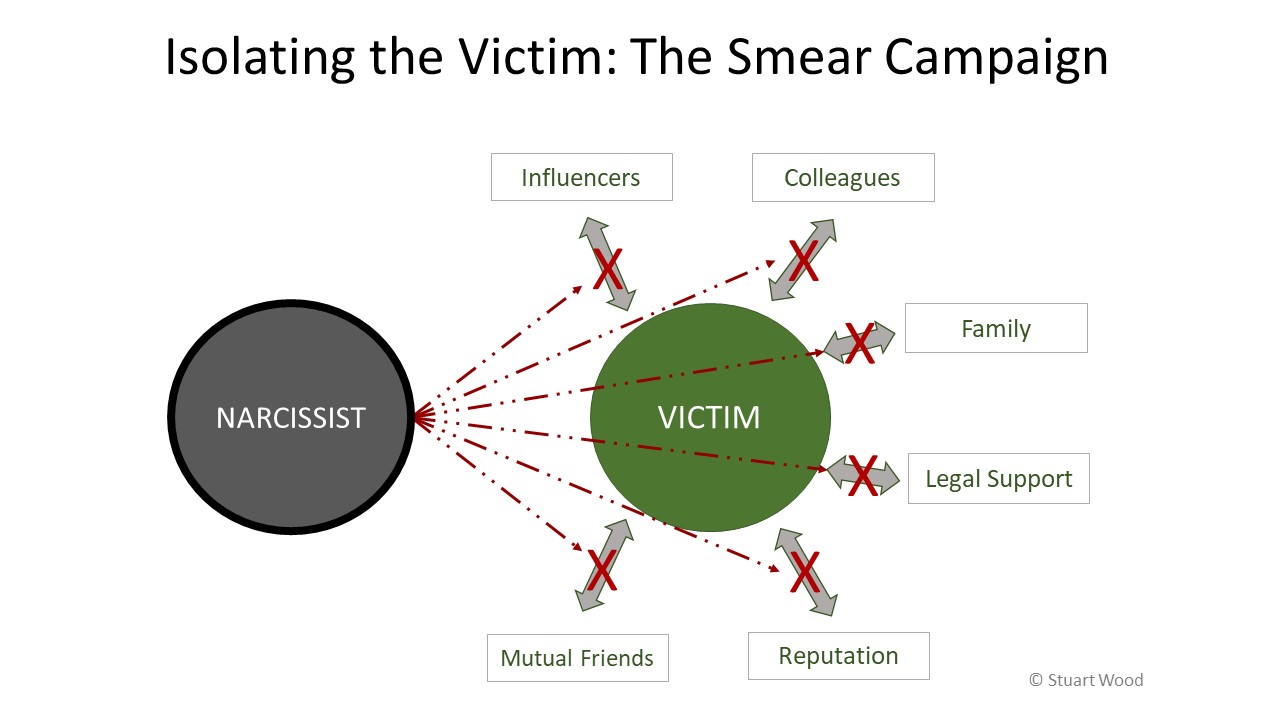
How Narcissists Get Their Own Way
Narcissist may like to be seen … and zero morals when they are threatened, that is, when something may not end the way they want it to. Expect to be blamed shamed, isolated or expelled once the narcissist runs amok whilst trying to save their own skin or retain control. This why they are so toxic to human relationships and so toxic wherever human relationship is needed.
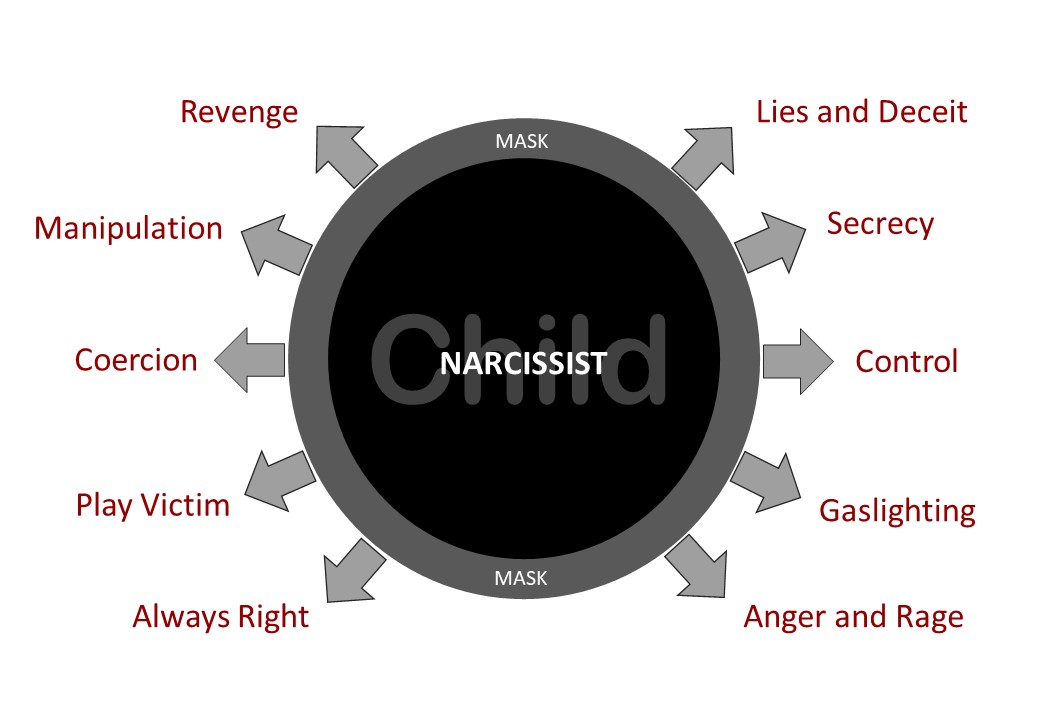
Escaping from a Narcissist
Escaping from an intimate relationship with a narcissist is difficult and carries risks. Finding somewhere safe for a night or two may be relatively easy, but escaping permanently requires careful planning, a lot of secrecy and a will of iron to see it through. The key to successful planning is to ask the right questions. The key to successful planning also requires the correct (safe, reliable and wise) support.
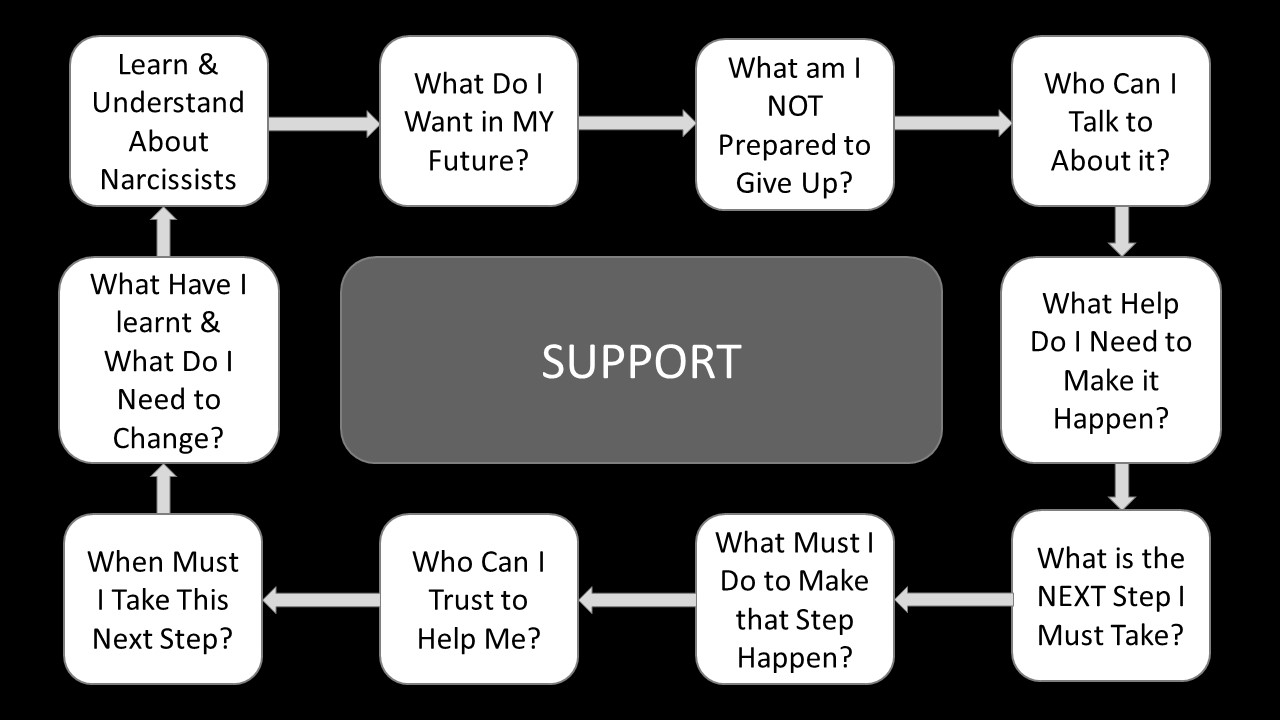
How People in Emotionally Abusive Relationships Describe Their Partner
Here are quotes from those directly impacted by narcissism, including family members, victims and lawyers.
Victims About Narcissists
There is a time when being selfish and putting yourself first is right. I felt like a butterfly must feel when breaking free of its chrysalis. It was slow and painful. Then I broke free. After shock and trauma, I spread my wings and learned to fly, even though it was scary.
Relationship with a Narcissist
I found it hard accepting that a person I thought I knew was really a total stranger and a fraud. I have lost years of my life.
Friends and Friendship
I cannot forgive so-called friends who deserted me without asking for my side. I hope they never experience what I have!
Supporting and Supporter
My ex-partner was afraid of my support. They couldn’t get away with their tricks and schemes anymore. I felt their fear.
Practical Tips
Mediation is expensive and pointless. I was worse off afterwards.
Avoid it!
From Legal Teams
In my thirty-five years as a family solicitor I have never come across someone so vindictive, entitled or, quite frankly, childish in a case.
... and FINALLY, this list would be incomplete without a narcissist’s own words.
Narcissists About Victims
“She argued with everything I said and was unreasonable, even abusive. I only wanted what was best for us both.”
Download all Quotes About Narcissists. →
Finding Professional Help
We cannot stress enough the importance of finding the CORRECT help if you are in, or have been in, an emotionally abusive relationship.
Professionals who are ‘narcissist unaware’ will quickly fall into a narcissist’s web of deceit. Worse still, they are likely to create further shame and guilt in survivors.
We recommend that you check out our Professional Help page for experts in their profession and in narcissism.
This page will continue to be updated as further resources become available.